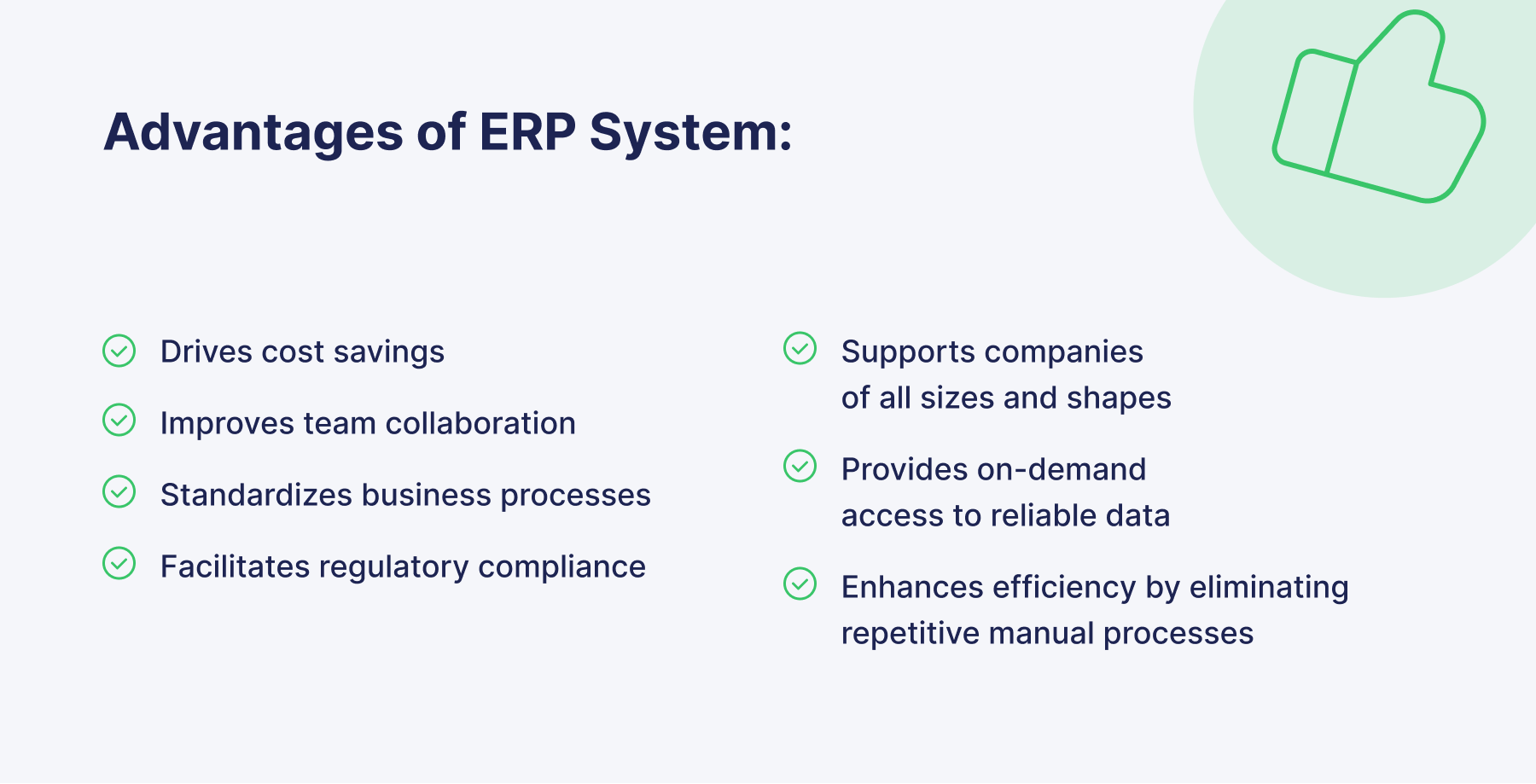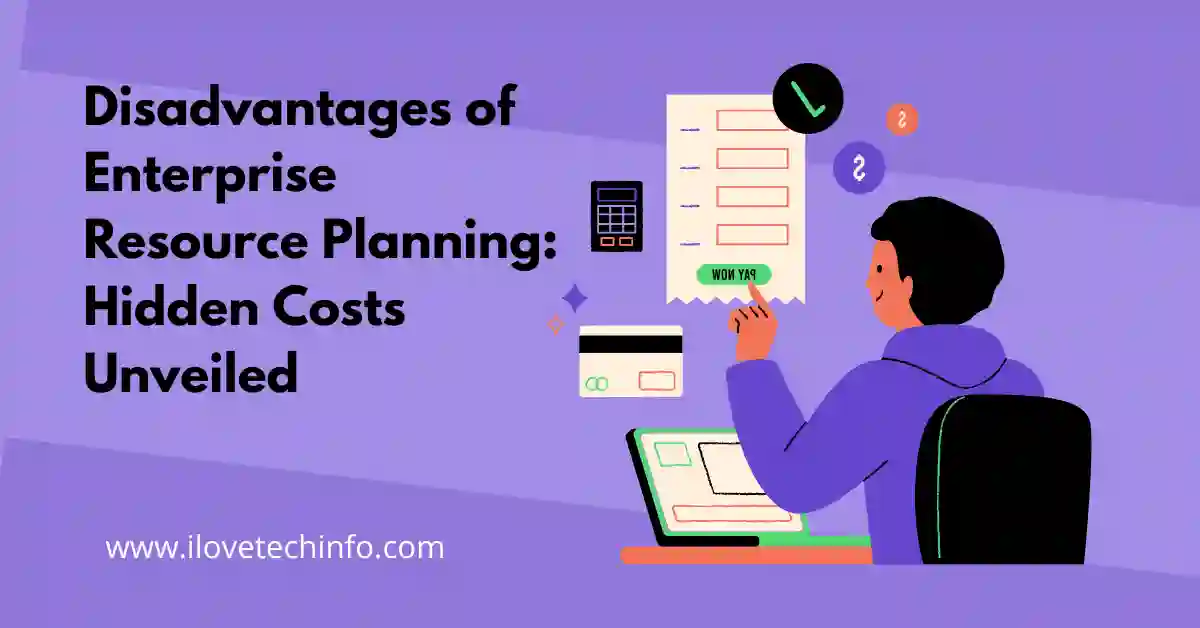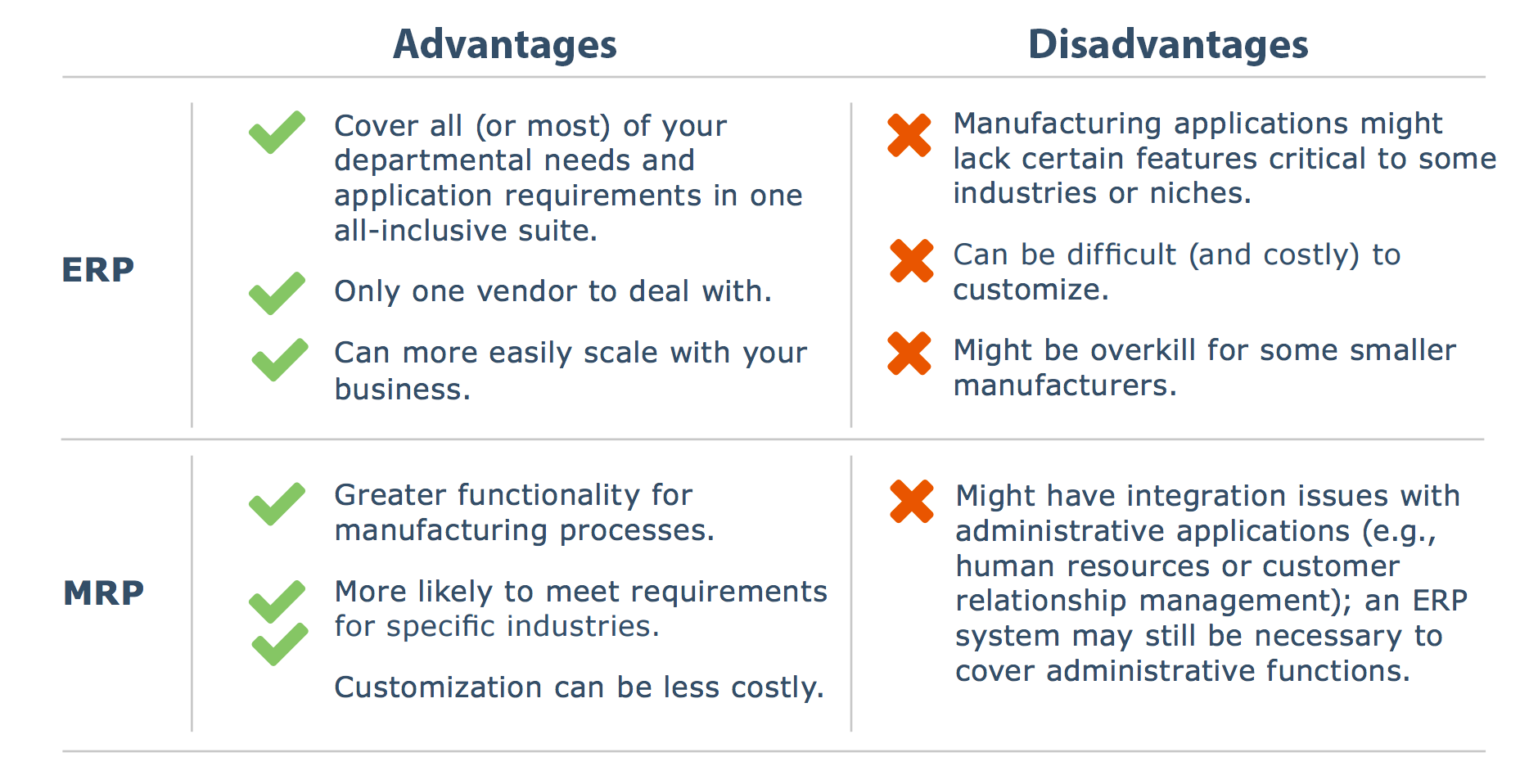Enterprise Resource Planning (ERP) systems help businesses manage their operations. But, they also have some disadvantages. Let’s explore these drawbacks in detail.

Credit: precoro.com

Enterprise Resource Planning (ERP) systems help businesses manage their operations. But, they also have some disadvantages. Let’s explore these drawbacks in detail.

Credit: precoro.com
ERP systems are expensive to set up. Small businesses often find the costs too high. The software itself is costly. Additionally, there are costs for installation and training.
Setting up an ERP system is not easy. It takes a lot of time and effort. Many businesses face difficulties during this process. They need to change their existing processes. This can be very challenging.
Implementing an ERP system takes a lot of time. It can take months or even years to complete. This long process can disrupt daily operations. Employees might need to work extra hours to manage their tasks.
Employees often resist new systems. They are used to their old ways of working. Learning a new system can be hard for them. This resistance can delay the implementation process.
ERP systems are not one-size-fits-all. Every business has unique needs. Customizing an ERP system can be difficult and expensive. It requires skilled professionals to make these changes.
ERP systems store a lot of sensitive data. This data can be at risk if the system is not secure. Hackers can target these systems. Businesses need to invest in strong security measures.
Maintaining an ERP system is costly. Businesses need to pay for regular updates and support. These costs can add up over time. Small businesses may struggle with these ongoing expenses.
ERP systems can make businesses too dependent on technology. If the system fails, it can cause major disruptions. Businesses need backup plans to manage such situations.
ERP systems can be rigid. They may not adapt well to new business needs. This lack of flexibility can limit growth and innovation. Businesses need to choose their ERP system carefully.
Businesses often rely on their ERP vendor for support. This dependence can be risky. If the vendor goes out of business, it can cause problems. Businesses need to have contingency plans in place.
Employees need proper training to use the ERP system. This training can be time-consuming and expensive. Without training, employees may not use the system effectively.
ERP systems need to integrate with other software. Integration can be complex and costly. It requires skilled professionals to manage this process. Businesses may face compatibility issues.
ERP systems can have hidden costs. These costs may not be apparent at the beginning. Businesses need to budget for these unexpected expenses. This can affect their financial planning.
ERP systems can have performance issues. These issues can slow down business operations. Regular maintenance is needed to ensure smooth performance. This adds to the overall cost.
Measuring the return on investment (ROI) of an ERP system can be difficult. The benefits may not be immediately visible. This can make it hard for businesses to justify the costs.
ERP implementation can be costly, time-consuming, and disrupt business processes. It requires significant training and adaptation.
ERP systems can reduce business flexibility due to their rigid structures and standardized processes.
ERP systems involve high initial costs, including software, hardware, and training expenses, which can strain budgets.
Yes, ERP systems can pose data security risks if not properly managed, leading to potential breaches and data loss.
ERP systems have many disadvantages. High costs, complex implementation, and data security risks are some of them. Businesses need to consider these drawbacks before investing in an ERP system. Proper planning and support can help manage these challenges.

Credit: www.viennaadvantage.com
| Disadvantage | Description |
|---|---|
| High Initial Costs | ERP systems are expensive to set up. |
| Complex Implementation | Setting up an ERP system takes a lot of time and effort. |
| Time-Consuming Process | Implementing an ERP system can take months or years. |
| Resistance to Change | Employees often resist new systems. |
| Customization Challenges | Every business has unique needs, making customization difficult. |
| Data Security Risks | ERP systems store a lot of sensitive data that can be at risk. |
| Maintenance Costs | Maintaining an ERP system is costly. |
| Over-Reliance on the System | Businesses can become too dependent on technology. |
| Limited Flexibility | ERP systems may not adapt well to new business needs. |
| Vendor Dependence | Businesses often rely on their ERP vendor for support. |
| Training Requirements | Employees need proper training to use the ERP system. |
| Integration Issues | ERP systems need to integrate with other software. |
| Hidden Costs | ERP systems can have hidden costs. |
| Performance Issues | ERP systems can have performance issues. |
| Difficulty in Measuring ROI | Measuring ROI of an ERP system can be difficult. |